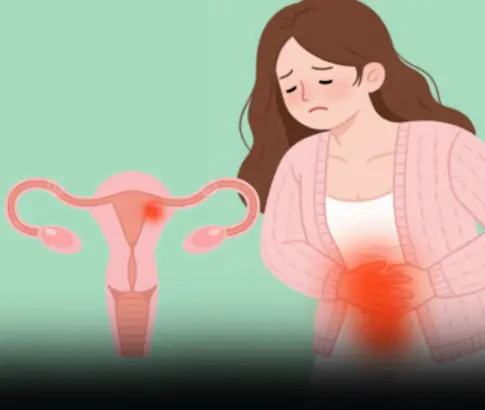
Male contraceptive pill appears to be safe without side effects in early trials

Researchers have reported that a male birth control pill has shown promising results in early-stage clinical trials, with no significant side effects. The hormone-free pill, designed to reduce sperm count in a reversible manner, was found to be safe in a trial involving 16 male volunteers.
For many years, contraception options for men have been limited to condoms and vasectomy. Previous attempts to develop a male contraceptive pill have been associated with side effects such as weight gain, acne, mood changes, and fluctuations in libido.
In contrast, women have a wider range of contraceptive methods, including the pill, implant, and intrauterine device (IUD), though many of these also come with undesirable side effects. The new male pill, however, does not rely on hormones, raising hopes that it could cause fewer negative side effects compared to earlier attempts, as revealed by early-stage research published in Communications Medicine.
The researchers from YourChoice Therapeutics, the drug development company behind the study, noted the need for more contraceptive options, as nearly half of all pregnancies worldwide are unintended. The new pill, which uses a chemical known as YCT-529, works by blocking vitamin A metabolites from binding to receptors in the testes, preventing sperm production.
Professor Alan Pacey, an andrologist at the University of Manchester who was not involved in the study, explained on BBC Radio 4’s Today programme: "This molecule targets retinoic acid, a compound linked to vitamin A, which is crucial for sperm production in the testes, making it an ideal target for a male contraceptive. It can inhibit this process without affecting the sex hormones that influence male libido."
Previous animal studies have shown that YCT-529 can cause reversible infertility without side effects.
In the recent trial, male volunteers aged 32 to 59 were given varying doses of the drug—10mg, 30mg, 90mg, and 180mg—while some received a placebo for comparison. The participants were monitored over 15 days to track side effects and hormone levels.
The study’s authors concluded: “YCT-529 was well tolerated by healthy male participants, with single doses of 10-180mg (fasted) and 30mg (fed). There were no adverse effects on cardiac safety, blood parameters, or sexual drive and mood. The drug also showed good bioavailability with no significant food-related effects.”
While Dr. Pacey described the findings as an "exciting step forward," he cautioned that the drug has not yet been tested in real-world conditions to confirm whether it effectively reduces the risk of pregnancies. He noted that it takes about three months for sperm to be fully produced, so it would take time for the pill to show its full contraceptive effect after starting treatment.
One of the significant challenges, according to Dr. Pacey, will be the cost of bringing this new pill to market.
News in the same category


4 Things You Should Never Say At A Funeral — No Matter What

Mass Panic as ‘New Baba Vanga’ Predicts Majo Disasters Striking in Just One Month

8 Early Warning Signs Of Ovarian Cancer You Shouldn’t Ignore

5 foods you should never keep overnight

Pain ON The Left Side Of The Body: What it could mean?

3 Ways to Prevent Snakes from Entering Your House: Protect Your Family

When a Washing Machine Shows 7kg, 8kg, or 10kg, Is That the Weight of Dry or Wet Clothes?

Don’t wear these two types of slippers on the plane—they can compromise your safety

On Humid Days, Walls Are Prone to Mold and Peeling

You Don’t Need to Mop the Floor All Week, But It Will Still Be Spotless Thanks to These 4 Amazing Tips That Very Few People Know

Do you need to unplug the rice cooker after the rice is cooked?

Effective and simple ways to restore a non-stick pan without needing to replace it

Defrosting Shrimp by Soaking in Water Is a Mistake

Effective tips to kill cockroaches and keep your house clean

Sprinkle a little salt into the door cracks, you will see something special after 5 minutes

If You Keep Waking Up at 3AM, The Universe Might Be Trying to Tell You Something

No Matter How Rich You Are, Never Buy These 4 Things Online
News Post

The Volume Buttons on Your iPhone Have Countless Hidden Features

4 Things You Should Never Say At A Funeral — No Matter What

Mass Panic as ‘New Baba Vanga’ Predicts Majo Disasters Striking in Just One Month

8 Early Warning Signs Of Ovarian Cancer You Shouldn’t Ignore

5 foods you should never keep overnight

Pain ON The Left Side Of The Body: What it could mean?

3 Ways to Prevent Snakes from Entering Your House: Protect Your Family

When a Washing Machine Shows 7kg, 8kg, or 10kg, Is That the Weight of Dry or Wet Clothes?

Don’t wear these two types of slippers on the plane—they can compromise your safety

On Humid Days, Walls Are Prone to Mold and Peeling

You Don’t Need to Mop the Floor All Week, But It Will Still Be Spotless Thanks to These 4 Amazing Tips That Very Few People Know

Do you need to unplug the rice cooker after the rice is cooked?

Effective and simple ways to restore a non-stick pan without needing to replace it

Secret tip: How to clean glossy tiles at home without spending a penny

Over 200 People Are Killed By The “World’s Deadliest Food” Every Year, But Almost 500 Million People Still Eat It

Nighttime Leg Cramps: When to Worry and Seek Medical Help

Why Kidney Failure Is Striking The Young—And How To Stop It

Only the “Unwise” Combine These 5 Foods with Pork
